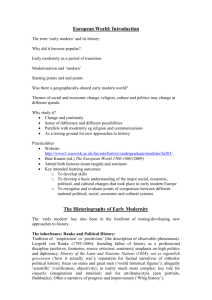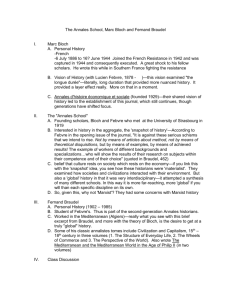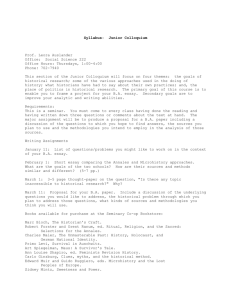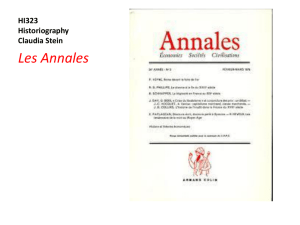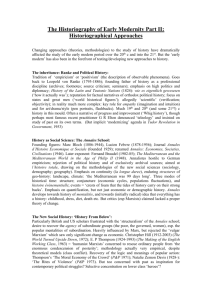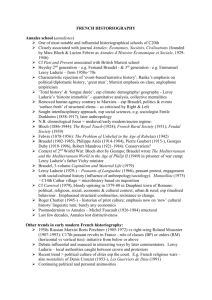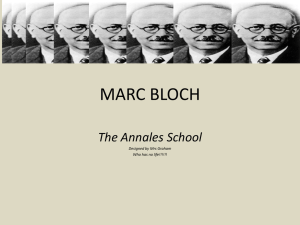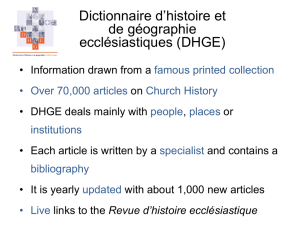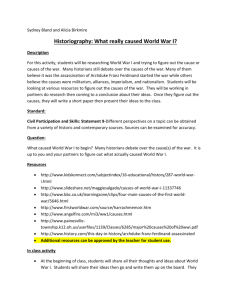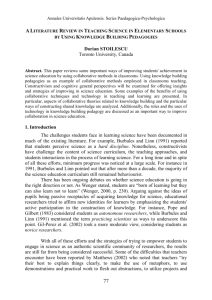The Annales School, An Intellectual History
advertisement
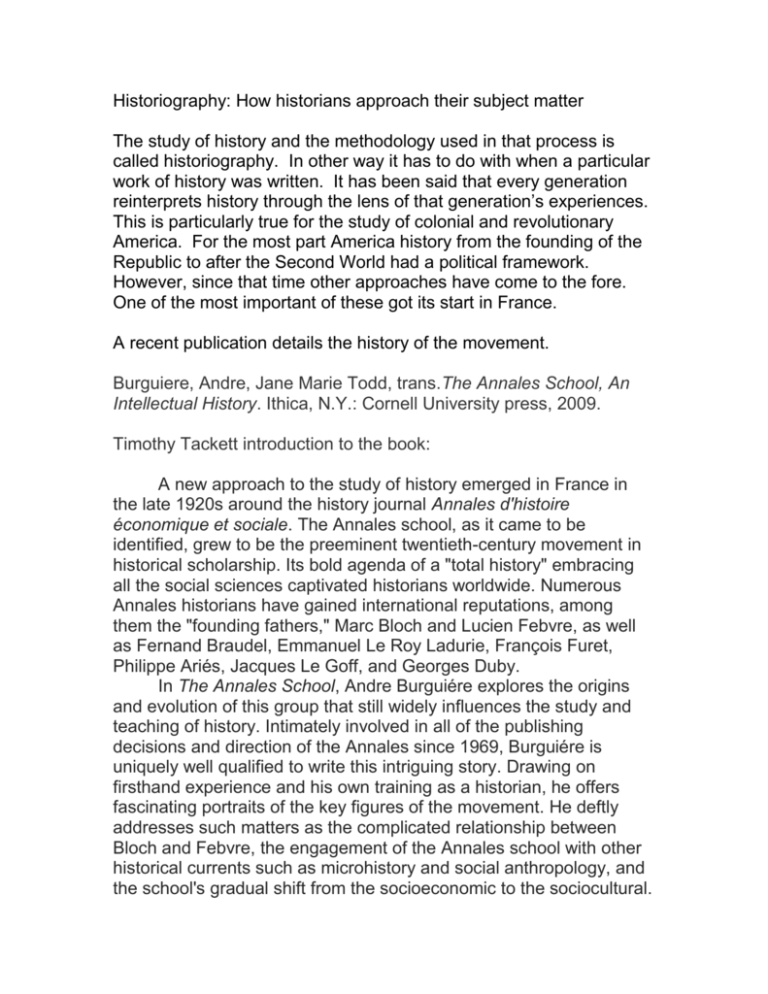
Historiography: How historians approach their subject matter The study of history and the methodology used in that process is called historiography. In other way it has to do with when a particular work of history was written. It has been said that every generation reinterprets history through the lens of that generation’s experiences. This is particularly true for the study of colonial and revolutionary America. For the most part America history from the founding of the Republic to after the Second World had a political framework. However, since that time other approaches have come to the fore. One of the most important of these got its start in France. A recent publication details the history of the movement. Burguiere, Andre, Jane Marie Todd, trans.The Annales School, An Intellectual History. Ithica, N.Y.: Cornell University press, 2009. Timothy Tackett introduction to the book: A new approach to the study of history emerged in France in the late 1920s around the history journal Annales d'histoire économique et sociale. The Annales school, as it came to be identified, grew to be the preeminent twentieth-century movement in historical scholarship. Its bold agenda of a "total history" embracing all the social sciences captivated historians worldwide. Numerous Annales historians have gained international reputations, among them the "founding fathers," Marc Bloch and Lucien Febvre, as well as Fernand Braudel, Emmanuel Le Roy Ladurie, François Furet, Philippe Ariés, Jacques Le Goff, and Georges Duby. In The Annales School, Andre Burguiére explores the origins and evolution of this group that still widely influences the study and teaching of history. Intimately involved in all of the publishing decisions and direction of the Annales since 1969, Burguiére is uniquely well qualified to write this intriguing story. Drawing on firsthand experience and his own training as a historian, he offers fascinating portraits of the key figures of the movement. He deftly addresses such matters as the complicated relationship between Bloch and Febvre, the engagement of the Annales school with other historical currents such as microhistory and social anthropology, and the school's gradual shift from the socioeconomic to the sociocultural. He also steps back to assess the long-term contributions—and failures—of the Annales school. Burguiére's account of the Annales school, the first by an insider, is a major contribution to the study of French intellectual history during the twentieth century, when French thinkers played a large role in developing new approaches to the social sciences. http://www.cornellpress.cornell.edu/book/?GCOI=80140100972 810 This is what Wikipedia has to say: Annales. Histoire, Sciences Sociales is a French academic journal covering social history that was established in 1929 by Marc Bloch and Lucien Febvre. The journal gave rise to an approach to history known as the Annales School. The journal began in Strasbourg as Annales d'histoire économique et sociale; it moved to Paris and kept the same name from 1929 to 1939. It was successively renamed Annales d'histoire sociale (1939–1942, 1945), Mélanges d’histoire sociale (1942–1944), Annales. Economies, sociétés, civilisations (1946–1994), and, finally, Annales. Histoire, Sciences Sociales in 1994. The scope of topics covered by the journal is wide but the emphasis is on social history and long-term trends (longue durée), often using quantification and paying special attention to geography and to the intellectual world view of common people, or "mentality" (mentalité). Less attention is paid to political, diplomatic, or military history, or to biographies of famous men. Instead the Annales focused attention on the synthesizing of historical patterns identified from social, economic, and cultural history, statistics, medical reports, family studies, and even psychoanalysis. http://en.wikipedia.org/wiki/Annales_School Many American historians a have embraced this methodology, particularly at Princeton University.
